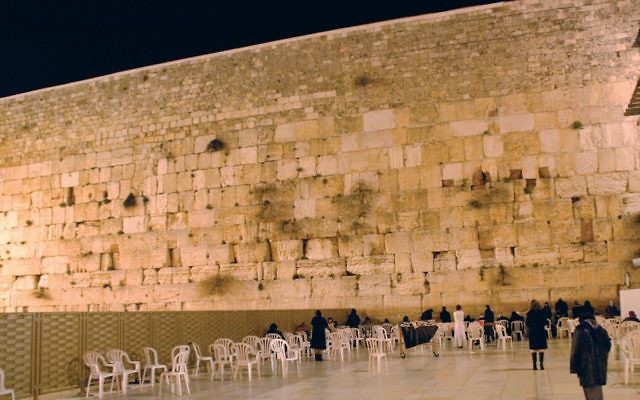Our View: Bibi Betrays Us at Kotel
As Stuart Eizenstat says, Israel can’t be the state of the Jewish people if it is only for some of the Jewish people.

Most of Jewish Atlanta has spent the past two months celebrating the Six-Day War’s 50th anniversary with one dramatic, emotional image in mind: paratroopers Zion Karasanti, Yitzhak Yifat and Haim Oshri standing beside the Western Wall on June 7, 1967, with looks of awe and wonder on their faces.
It was the defining moment of the war: the liberation of the wall and the Temple Mount above. Amid charges of occupation and uncertainty about how to achieve the goal of all people between the Jordan and the Mediterranean living in peace and security with full citizenship rights, we clung to the Kotel, representing the Jewish people’s eternal return to our holiest sites.
We have cheered declarations that Israel will never again allow Jerusalem to be divided. We have shouted in outrage at Arab statements and U.N. agency resolutions denying the historical Jewish connection to Jerusalem and its holy sites — a connection demonstrated by the Western Wall itself, a Jewish construction erected more than 2,000 years ago to support an expansion of the Temple Mount.
But now it appears that we in the Diaspora were conned. We put our trust in Prime Minister Benjamin Netanyahu’s government to fulfill his vision of an Israel for all the Jewish people; he repaid us by making clear that our value begins and ends with our money and our lobbying power.
We see no other way to interpret the betrayal at the heart of the Israeli Cabinet decision Sunday, June 25, to freeze the much-celebrated, long-delayed plan to provide a permanent area for egalitarian prayer at the Kotel.
Atlanta native Stuart Eizenstat, the co-chair of the Jewish People Policy Institute, was at that Cabinet meeting. He told The Times of Israel that he warned of the damage to the relationship with American Jewry.
Israel can’t be the state of the Jewish people, Eizenstat said, “if it is only for some of the Jewish people. It cannot be only for the ultra-Orthodox in the world.”
The compromise worked out by Jewish Agency Chairman Natan Sharansky and announced by Israel in January 2016 was far from perfect, but it was based on one fundamental principle: The Western Wall belongs to all Jews, not just those who live in Israel or who practice their Judaism in a particular way.
It was a compromise that the ultra-Orthodox leadership in Israel accepted because it maintained Haredi oversight of the heart of the wall while forcing egalitarian observances to the southern end, an area less scenic and less developed. Those same ultra-Orthodox leaders who endorsed the deal soon changed their minds when they saw celebratory reactions from their “enemies” — fellow Jews who seek acceptance of diversity in observance, a tradition at least as old as the Kotel itself.
First Netanyahu stalled for a year and a half to appease the religious political parties. Now the deal is frozen while a couple of Netanyahu’s cronies try to work out a new “compromise” between the previous compromise and the Haredi hard line.
We have no faith in the prime minister to enact any Kotel compromise, even if he’s in power until the 75th anniversary of the 1967 war. By email, Facebook, Twitter or other means of communication, we all must ensure Netanyahu knows how we feel.



comments